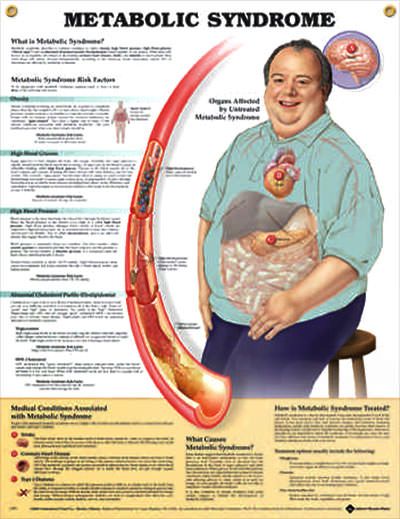Recent research enlightened me to a paradox in cholesterol research. It appears that vitamin D supplementation actually raises total cholesterol (TC) levels and “bad cholesterol” levels (LDL). Supplementation is also associated with a small rise in “good cholesterol” levels (HDL). The paradox lies in the fact that sunlight exposure is associated with a decrease in total cholesterol levels and LDL, while also producing a small rise in HDL. In both cases, vitamin D levels are raised significantly. 
The research, from India, was born of a concern that although India has abundant sunshine, vitamin D deficiency is common, because so many do not take advantage of sunlight exposure. The researchers decided to determine whether it was better to use sunlight exposure to increase vitamin D levels, or to instead use vitamin D supplementation. To do this, they formed three groups: a control group that had “normal” levels above 50 nmoL (20 ng/ml), and two vitamin D-deficient group with levels below 50 nmoL. One of the vitamin D-deficient groups increased their usual sunlight exposure by at least 20 minutes to their face and arms between 11 AM and 3 PM daily. The other deficient group received oral supplements of 1,000 IU of vitamin D (cholecalciferol), but did not increase sunlight exposure. The researchers also measured cholesterol levels. The study lasted for 6 months and the results were as described above: A decrease in TC level and LDL levels in the sunlight exposure group, an increase in TC and LDL in the supplementation group, and an increase in HDL in both groups.
It would have been interesting if the subjects in the sunlight-exposure group had experienced full-body exposure for 20 minutes, which can produce up to 20,000 IU of vitamin D; a few minutes on the face and arms is not sufficient to optimize vitamin D levels. Equally, the use of 1,000 IU daily of vitamin D is miniscule. I would have suggested at least 4,000 IU daily. Altering upward the dosages of both sunlight and vitamin D could have shown larger differences. More research needs to be done to determine whether or not these results can be replicated.
The indications of this study is that vitamin D supplementation may be harmful because it raises serum lipids in an adverse manner. There is also an indication that sunlight exposure improves lipid profiles while still raising vitamin D levels.
By what mechanism would sun exposure lower cholesterol levels? A type of cholesterol precursor called 7-DHC is stored in the skin. It is also used to produce vitamin D when under the influence of sunlight. Regular sunlight exposure would reduce this cholesterol store and thereby reduce cholesterol levels.
As to why vitamin D supplementation might increase cholesterol levels, it could be due to the fact that it is usually made by radiating lanolin from sheep. Animal products are known to raise cholesterol levels.
Whatever the reasons for the ability of sunlight to lower cholesterol levels, this study is one more indication that sunlight is a friend to nearly every system of the body. Be sure to obtain plenty of non-burning sunlight. Your heart and brain will thank you for it!
Sun exposure reduces risk of heart disease. High cholesterol levels are associated with vascular diseases such as heart disease, ischemic stroke and intermittent claudication (an occlusion of the arteries of the legs that leads to pain and disability). The authors of a recent study compared the effects of vitamin D supplementation with sun exposure to determine which was more effective in reducing risk factors.[1] A group of individuals with insufficient serum vitamin D levels was divided into two groups with different experimental protocols: one was treated with sun exposure to the arms and face between 11 AM and 3 PM and the other was treated with 1,000 IU of vitamin D. A third group had “normal” vitamin D levels and served as a control (no treatment group). Total cholesterol levels and its components of cholesterol, HDL and LDL, were also measured to determine the positive (or negative) effects of the two treatment protocols.
The results were enlightening. Both experimental groups had significant increases in vitamin D. However, the results with cholesterol varied. A significant decrease in total cholesterol was noted in the sun exposure group, and HDL and LDL also decreased in the sun-exposure group. However, in the vitamin D-supplement group, a significant increase was noted in in total cholesterol. HDL also increased significantly, and LDL increased non-significantly.
In other words, vitamin D supplementation could actually lead to an increased risk of vascular diseases by raising total cholesterol, whereas sun exposure is protective against those diseases. So the takeaway is that there is no substitute for the sun when it comes to providing some protection against vascular diseases.
There are those people who worry that melanoma risk may be increased by regular sun exposure. However, we have mentioned many time in this blog that melanoma is much more common among those who work indoors than those who work outdoors. It should also be mentioned that vascular diseases kill far more people than skin cancer. Dr. Richard perhaps said it best:
“Sunlight may have beneficial cardiovascular effects, independently of Vitamin D production. Vitamin D could, in these circumstances, act as a marker for sunlight exposure and its postulated beneficial effects. These recent human data show the physiological relevance of photorelaxation. High blood pressure is the leading cause of disability-adjusted life years lost worldwide and as a risk factor underlies 18% of all deaths.” Weller further noted: “The action spectrum of nitrite release shows ultraviolet B is also involved in nitrite reduction to Nitric Oxide, and thus sunlight may be more effective than a pure UVA source.” He concluded: “the prevalence of cardiovascular and cerebrovascular deaths is around 100 times higher than those from skin cancer. Interventions leading to small changes in the incidence of cardiovascular disease are thus of greater benefit to the health of the public even than large changes in skin cancer incidence.”[2]
Safely embrace the sun and your heart, brain and blood vessels will love you for it!
[1] Patwardhan VG, Mughal ZM, Padidela R, Chiplonkar SA, Khadilkar VV, Khadilkar AV. Randomized Control Trial Assessing Impact of Increased Sunlight Exposure versus Vitamin D Supplementation on Lipid Profile in Indian Vitamin D Deficient Men. Indian J Endocrinol Metab. 2017 May-Jun;21(3):393-398.
[2] Weller R. The health benefits of UV radiation exposure through vitamin D production or non-vitamin D
Pathways. Blood pressure and cardiovascular disease. Photochem. Photobiol. Sci. 2016.


